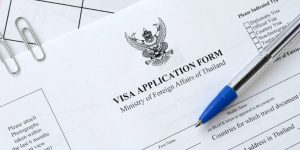If you are a foreigner and want to file a lawsuit in Thailand, it is important to understand the rules regarding the court’s jurisdiction and the process for service of process. In Thailand, service of process may be handled through international postal services. Alternatively, if the defendant has a place of business in Thailand, or an appointed service agent, the plaintiff can serve process on the foreign party at the place of business or appointment.
Arbitration is only available to the losing party
If a Thai court does not uphold an award of arbitral costs, the losing party can appeal the decision to a competent court. However, in most cases, a Thai court will only consider an arbitration award if it is more than one-third of the total amount sought. In this scenario, arbitration may be the better choice. In addition, a Thai court will generally recognize arbitration awards and enforce them as a matter of Thai law.
Order of the Supreme Court is final
In Thailand, the Supreme Court serves as the final appellate court. Its judgment and order is considered final in all cases. In the country, there are three levels of Thai courts: the Civil Court, the District Court, and the Provincial Court. Appeals to the Supreme Court are allowed by either party, but the order of the Supreme Court is the final word on all disputes. Appeals to the Supreme Court must be made within 60 days of the Supreme Court’s decision.
Service of summons
A Thai court do not have a comprehensive discovery scheme. The basic rules of disclosure, known as the CPC, require parties to file a list seven days before taking evidence, provide copies to the other party, and describe all of the relevant documents. Parties may submit additional lists of evidence. When serving summonses in Thailand, the petitioning party must first file a separate petition for the court to serve the summons.
Costs of arbitration
In the past, a Thai court have encouraged parties to choose arbitration over litigation in some cases. For instance, in the Civil Code of Procedure 1934, Thailand incorporated mediation. Its courts also promote negotiation between disputing parties. The Thai Arbitration Act, which was based on the UNCITRAL Model Law for International Commercial Arbitration, signaled that Thailand was serious about arbitration. Today, arbitration remains one of the most popular and widely used alternative dispute resolution methods in Thailand.
Costs of mediation
The increasing use of alternative dispute resolution (ADR) methods in Thailand’s court system is transforming the legal landscape in a positive way. Rather than simply pursuing the option of a trial, Thailand’s courts are now requiring many disputes to be resolved through mediation. Although Thailand’s litigious culture may not make it sound like it’s the most appropriate alternative dispute resolution process, the fact is that this method of settlement is highly effective in reducing costs and time.
Enforcement of arbitral award
In Thailand, a court can order the enforcement of an arbitral award if it is not yet binding. During this time, the award can still be set aside by a competent court or law. In addition, the opposing party has the right to challenge the award and file an application to set aside the award within 90 days. The procedure is similar to that of the enforcement application. There are several reasons that can prevent an arbitral award from being enforced in Thailand.






